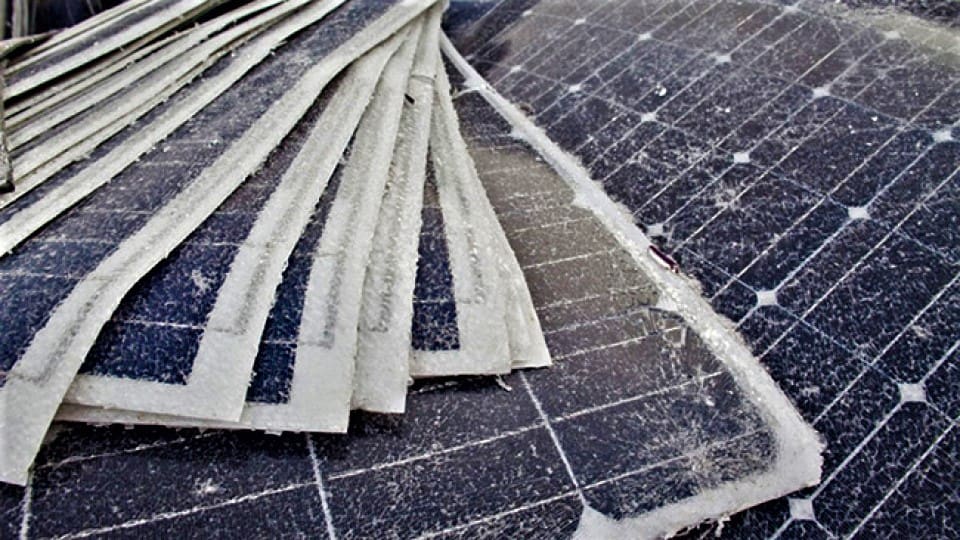Solar panels are the new plastic bottles

Discarded solar panels are piling up in all sorts of unwanted places, not just e-waste dumps and landfills
- Dateline
- 14 October 2038
The great thing about rooftop solar panels is that they don’t require much maintenance, and give us ‘free’ electricity for about 25 years. The not so great thing about solar panels is that after 25 years, what on earth do you do with them?
In the frenzy that followed Greta Thunberg’s assault on the establishment in 2019, and the global investment revolt against dirty power, solar panel installations rose exponentially, even as panel prices plummeted. And the vast majority of rooftop systems were cheap Chinese made, poly crystalline panels.
Now barely 20 years later, the shine is beginning to wear off, as power outputs drop and cells wear out. Companies like Tesla have reassured consumers, and will even take back panels if residents no longer want them, or replace them at nominal cost for fresh ones. But those old panels still have to go somewhere and be dealt with.
Add to that the increasing number of solar modules that have been damaged or partly destroyed by hurricanes, tornados and tsunamis. Broken panels are not only electrically hazardous, they can leak toxic materials and heavy metals into the environment. And e-waste depots are already overflowing with dead batteries. Recycling costs more than the economic value of the materials recovered.
Tesla’s iconic solar roof tiles are a better bet, as they continue to function as roof tiles, long after their power output has dimmed. Which is fine if you live in the United States, where they’re popular, and not in India or China, the biggest source of discarded panels, where they’re virtually unknown.
Recycling modules from the early days of the solar revolution is also problematic – the materials and chemicals you can harvest from them are of little use; the technology has advanced, and the latest panels are entirely different. But at least they should last beyond 40 years!
With little incentive to recycle, a cut-throat industry, and ever-increasing consumer expectations for free energy, it’s no wonder that solar installers and facilities managers are cutting corners on the environment. Discarded solar panels are turning up everywhere, even in the deep ocean. Just like plastic!
Links to related stories
- If Solar Panels Are So Clean, Why Do They Produce So Much Toxic Waste? – Forbes, 23 May 2018
- More solar panels mean more waste and there’s no easy solution – The Verge, 25 October 2018
- E-Waste Offers an Economic Opportunity as Well as Toxicity – New York Times, 5 July 2018
- Mindbullet: Solar paint makes its debut (Dateline 23 June 2022, Published 22 June 2017)
- Mindbullet: Dead batteries worse than nuclear waste (Dateline 3 May 2024, Published 2 May 2019)
Warning: Hazardous thinking at work
Despite appearances to the contrary, Futureworld cannot and does not predict the future. Our Mindbullets scenarios are fictitious and designed purely to explore possible futures, challenge and stimulate strategic thinking. Use these at your own risk. Any reference to actual people, entities or events is entirely allegorical. Copyright Futureworld International Limited. Reproduction or distribution permitted only with recognition of Copyright and the inclusion of this disclaimer.